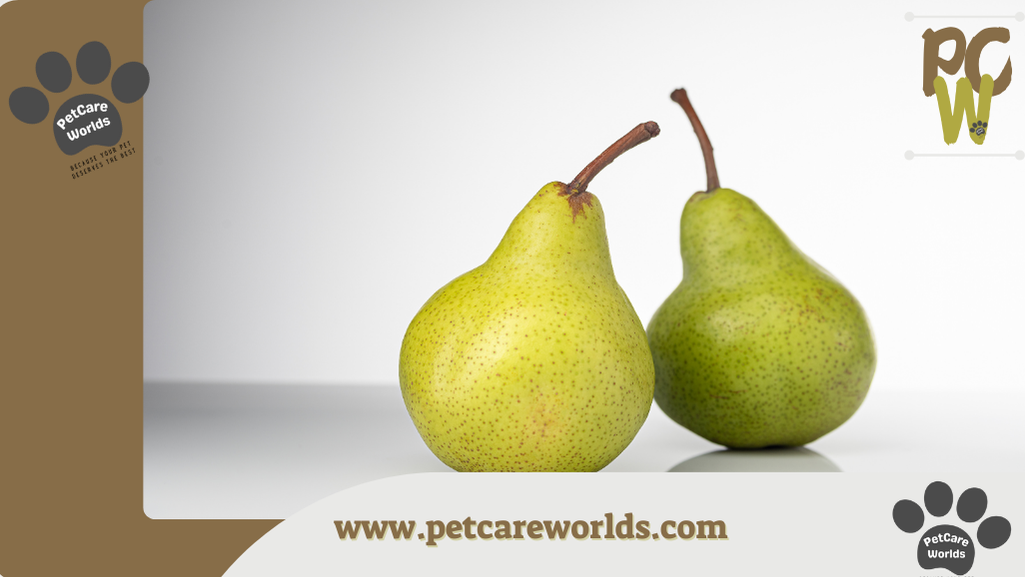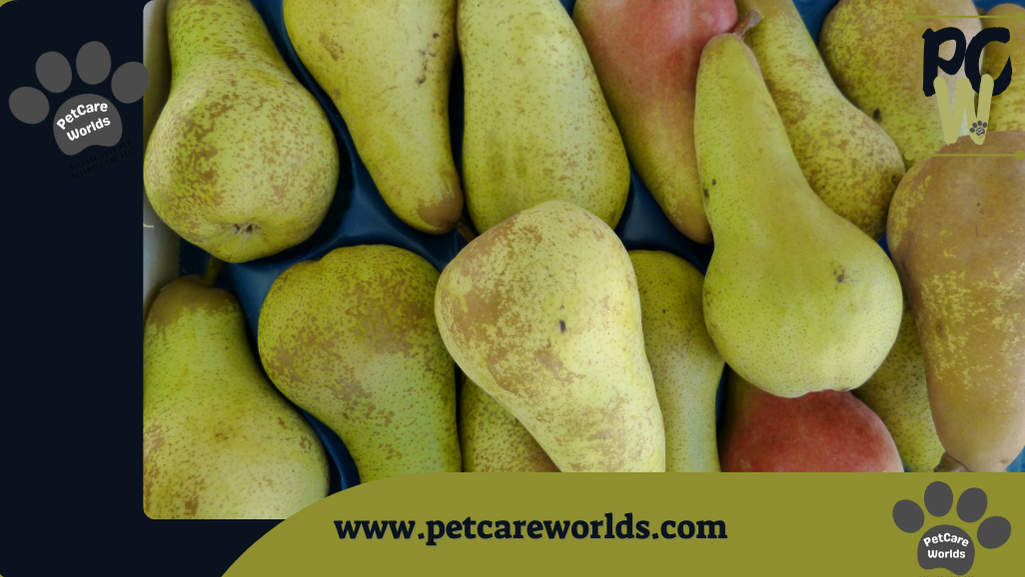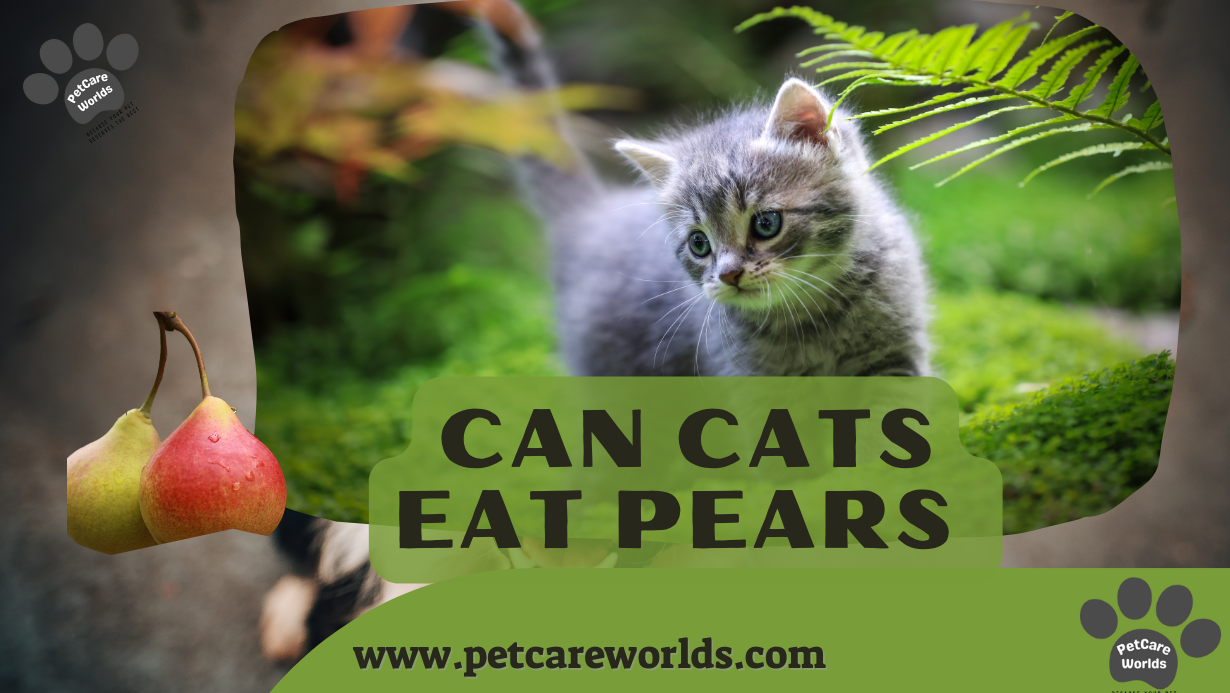Can cats eat pears? It’s a question many cat owners have wondered about, especially when they see their feline friends sniffing around their fruit bowl. While cats are known for their curiosity, their digestive system is quite different from ours. So, is it safe to share a pear with your cat, or should you keep the juicy fruit to yourself? In this article, we’ll explore the benefits and risks of pears for cats, as well as how to safely introduce this fruit into their diet (if you decide to do so). Keep reading to find out if pears can be a healthy treat or a potential problem for your furry companion!
Can cats eat pears?
You’ve probably seen your cat eyeing that pear on the counter. But should you share it with them? While cats are curious creatures, not all human foods are safe for them. Pears might seem harmless, but are they really a good choice for your feline friend? In this section, we’ll dive into whether pears are a safe snack for cats and what you need to consider before offering them a bite. Keep reading to uncover the surprising truths! Can cats eat pears
Understanding a Cat’s Taste Preferences
Cats experience taste differently from humans. While we love sweet flavors, cats lack receptors for sweet tastes. They are more sensitive to bitter and sour flavors. This means fruits like pears may not appeal to them the way they might to us. Still, cats are curious creatures and may try different foods, even if they don’t naturally crave them. Can cats eat pears
What Makes Pears Appealing to Cats?
So why might your cat be interested in pears? For one, pears are juicy and soft, which can attract their attention. The texture and moisture may be something they enjoy exploring. Additionally, pears are high in water content, which can be refreshing for some cats. However, despite the appeal, it’s important to remember that not all cats will react the same to this fruit. Can cats eat pears
Are Pears Safe for Cats to Eat?
In moderation, pears can be safe for cats, but there are important things to watch out for. The peel and seeds of pears should always be removed before offering them to your cat. The seeds contain cyanide, which is toxic. Also, pears are rich in fiber, and too much fiber can upset a cat’s digestive system. Small portions are key to ensuring safety. Can cats eat pears
Health Benefits of Pears for Cats
Pears offer several potential benefits when given in small amounts. This fruit is rich in water, which can help keep your cat hydrated. While pears are not a major source of essential nutrients for cats, they do contain vitamins that could support your pet’s overall health. However, the key is moderation.
Vitamins in Pears and Their Role for Cats
Pears are packed with vitamins that can be beneficial for cats in small doses. These vitamins play an important role in supporting their health, though they are not essential in large amounts. Here’s a closer look:
- Vitamin A – supports eye health.
- Vitamin C – helps boost the immune system.
- Vitamin K – aids in blood clotting.
Vitamin A: Importance for Vision
Vitamin A is crucial for your cat’s vision, especially for nighttime sight. Cats are known for their ability to see in low light, and vitamin A plays a role in maintaining this important ability. While pears contain this vitamin, cats usually get enough from their regular diet. Can cats eat pears
Vitamin C: Boosting Immune System
Vitamin C is important for immunity. Though cats can synthesize their own vitamin C, small amounts from pears could provide an extra boost. It helps protect the body from illnesses and supports the immune system’s efficiency. Can cats eat pears
Vitamin K: Essential for Blood Clotting
Vitamin K is vital for blood clotting. A deficiency can cause bleeding disorders. Pears provide a small amount of this vitamin, but it’s not enough to replace other more reliable sources found in a cat’s balanced diet. Can cats eat pears
Potential Risks of Pears for Cats
While pears are not necessarily harmful, there are some risks involved, especially if cats consume too much. Overconsumption can lead to digestive problems and more serious health concerns. Here are some of the main risks:
Excess Fiber and Digestive Issues
Pears are high in fiber, which can be beneficial in small amounts but problematic if eaten in excess. Too much fiber can upset your cat’s stomach, causing issues like diarrhea, cramping, and stomach discomfort.
Allergic Reactions in Cats
Some cats may have allergic reactions to pears. This could result in vomiting, itching, or other signs of an allergic response. Introducing pears cautiously is key to avoiding any reactions. Can cats eat pears
Pears and Essential Nutrient Deficiency
While pears contain some nutrients, they don’t provide the essential proteins and nutrients that cats need. Pears should not be used as a replacement for a balanced diet. Over-relying on fruits like pears could lead to deficiencies. Can cats eat pears

How to Safely Introduce Pears to Your Cat’s Diet
If you want to share pears with your cat, there are steps you must follow to ensure it’s done safely. The right precautions can help prevent any issues and make the experience more enjoyable for your cat.
Peel the Pear and Remove the Seeds
Pears should be peeled and all seeds removed before feeding them to your cat. The seeds contain cyanide, which is toxic in high quantities. Always ensure there are no seeds left behind.
Start with Small Amounts
When introducing pears to your cat’s diet, start with just a small piece. Monitor for any signs of discomfort or digestive issues. Gradual introduction will help ensure that your cat’s body reacts well.
Consulting with a Veterinarian
Before adding new foods to your cat’s diet, it’s always a good idea to consult with a veterinarian. A professional can give you tailored advice based on your cat’s health and dietary needs.
Can Kittens Eat Pears?
When it comes to kittens, introducing new foods should be done with extra caution. Their digestive systems are still developing, and certain foods might not sit well with them.
Risks of Pears for Kittens
Pears can be harder for kittens to digest because their systems aren’t fully developed. Large quantities of pears could lead to upset stomachs, vomiting, or diarrhea. It’s best to avoid feeding them pears at a young age.
Alternative Food Options for Kittens
For kittens, it’s better to focus on nutritionally balanced kitten food. These foods are specially formulated to meet their growth and development needs. If you’re looking to introduce variety, safe, kitten-friendly options are always the best choice.

Can Cats Eat Pears? Table
| Aspect | Details |
|---|---|
| Safety | Pears are generally safe in small amounts but should be peeled and seeds removed. |
| Health Benefits | Pears contain vitamins A, C, and K, beneficial for vision, immunity, and blood clotting. |
| Risks | Excess fiber can cause digestive issues like cramps, diarrhea, and upset stomach. |
| Allergic Reactions | Some cats may experience allergic reactions like vomiting or itching. |
| Recommended Serving Size | Serve in small pieces, starting with one or two small bites to see how your cat reacts. |
| Alternative Options | Cats should primarily consume a balanced diet, with fruits like pears only as a rare treat. |
“Moderation is key when introducing new foods to your cat’s diet. Always monitor your cat’s reaction closely.”
Can Cats Eat Pears? FAQ
1. Can cats eat pears safely?
Yes, cats can eat pears safely in moderation, but always remove the skin and seeds. Pears should only be offered as an occasional treat, not a regular part of their diet.
2. What are the health benefits of pears for cats?
Pears provide vitamins A, C, and K, which help with vision, immune system support, and blood clotting. However, pears should not replace a balanced cat food.
3. Are there any risks of feeding pears to cats?
Yes, feeding too much pear can lead to digestive issues like cramps and diarrhea due to the high fiber content. Some cats may also have allergies to pears, so it’s important to monitor for any adverse reactions.
4. Can kittens eat pears?
Kittens should not be fed pears, as their digestive systems are still developing. Stick to kitten-specific food for their health and growth.
5. How much pear can I give my cat?
Only offer small amounts, starting with one or two small bites. If your cat reacts well, you can occasionally offer a little more, but keep the serving size limited.
6. What should I do if my cat has a negative reaction to pears?
If your cat shows signs of vomiting, diarrhea, or discomfort, remove pears from their diet immediately and consult a veterinarian.
Conclusion
Can cats eat pears? Yes, but only in moderation. Always remove the skin and seeds. Introduce it cautiously and monitor for any digestive or allergic reactions.





